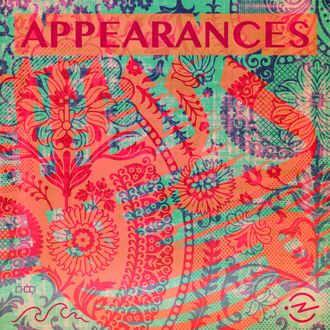
One of the many melancholias associated with growing older is having to come to terms with the fact that your parents probably will never truly understand you in the way you had hoped they would, and vice versa. This is especially true for immigrants and their children, who have to overcome not just a life’s worth of experience but an impassable crevasse of culture as well. You could spend years trying to close that gap, of course, but more often than not, it’s a punishing prospect that comes with potentially devastating personal cost.
Such is the emotional terrain grounding Appearances, a podcast by Sharon Mashihi and Mermaid Palace that recently wrapped up its nine-episode run. The show is a bit of a mind-bender to describe, but you could say it’s an ambiguously fictionalized telling of a personal inflection point in Mashihi’s life: She wants to have a child but is not yet traditionally coupled, which runs counter to the expectations of her Iranian American family — in particular her mother, with whom she already clashes on so many other things in the way second-generation kids do.
As the series opens, Mashihi tells us that she finds the conundrum too difficult to emotionally confront head-on, that the very notion of contemplating how her real-life mother would respond stops her in her tracks. She also intends to catalogue this experience somehow but finds herself chafing at questions of whether she’ll truly be able to portray the people in her life accurately within the construct of a nonfiction documentary. And so Mashihi decides to shift gears toward autofiction (to the extent the term means anything specific) as a means, in part, to create some emotional distance from the real world that could give her enough space to arrive at some larger truth.
Which brings us to the core mechanic of Appearances: Mashihi creates a semi-fictional version of herself, Melanie Barzadeh, and dramatizes her journey toward single-motherhood while navigating her relationship with an equally semi-fictional version of her family, all of whom are voiced by Mashihi herself.
Those familiar with some forms of therapy will recognize what’s going on here, with Mashihi using a kind of playacting to game out how her family would respond to her choice. It’s a kind of war game of the self, literalizing and vastly expanding the idea of playing out an argument in your head over and over again. In doing so, the practice raises the possibility of Mashihi deepening some empathy for her family — or, at least, a conception of her family.
The end result is a thoroughly compelling listen, with the premise of plumbing the emotional depths of engaging with an idea of your family based on your own perceptions, biases, and understanding of them being a luxuriously complicated one. But it can also make for an uneven experience, with moments of genuine feeling and insight punctured by creative tics that border on the self-indulgent. The podcast is at its most frustrating when it calls attention to what the project is trying to do, instead of letting the concept fly on its own terms. In the seventh episode, Mashihi, as a performance of the real-life narrator, steps in to engage Melanie in conversation about the podcast. It’s an interesting idea if you can swing it, but that wasn’t necessarily the case here.
Such showy deconstructivism is typical of Appearances. While those flourishes do raise interesting ideas here and there, they can also weaken the emotional punch packed away in the podcast, which is otherwise powerful. Where Appearances works best is in the way it conjures the sadness of always being spiritually distant from the ones you love, of that gap between the messy you and someone else’s idealized version of you.
That said, as frustrating as those self-reflexive touches may be, I think I can see the point in them, as they do gesture toward certain pockets of experiences and insight that maybe you couldn’t access any other way. There are ways in which Mashihi’s multicharacter performances capture the vivid frictions between mother and daughter, parent and child, working across a cultural gap and a universe of muddled identities.
And there’s a moving payoff in the show’s concluding episode, when the narrative breaks from its meta-staging of the real world and looks ahead to a theoretical future, giving space for Mashihi to really grapple with the sense of catharsis she’s been heading toward the whole time. The ending perfectly embodies the polarizing nature of Appearances. On the one hand, it’s hyperaware and perhaps a little too pleased with itself. But on the other hand, it’s also beautiful, hopeful, and well worth your time.



